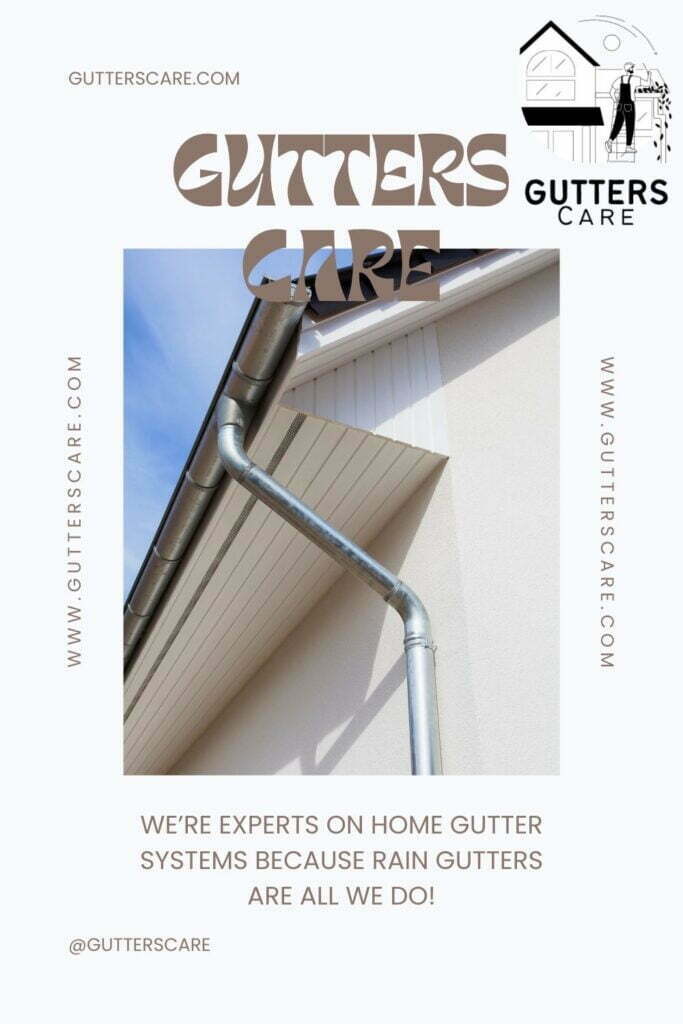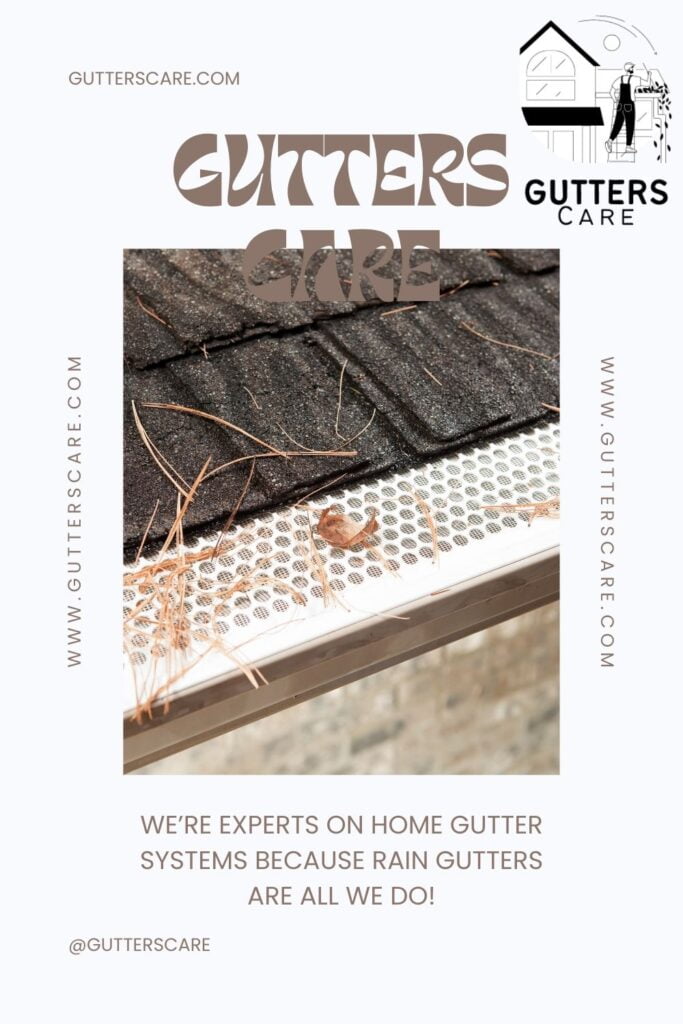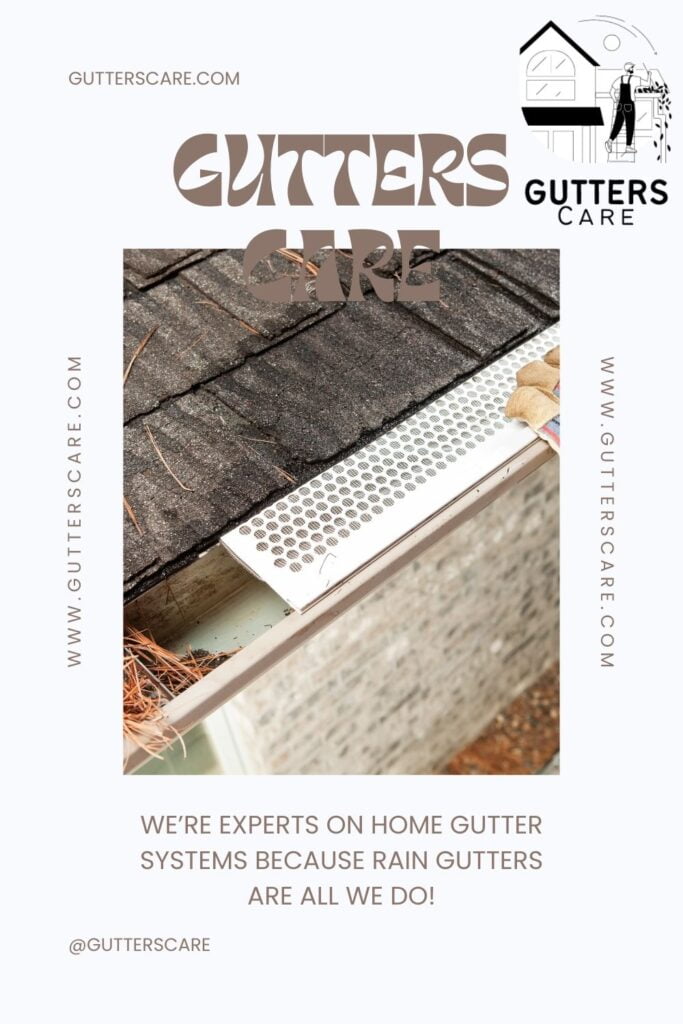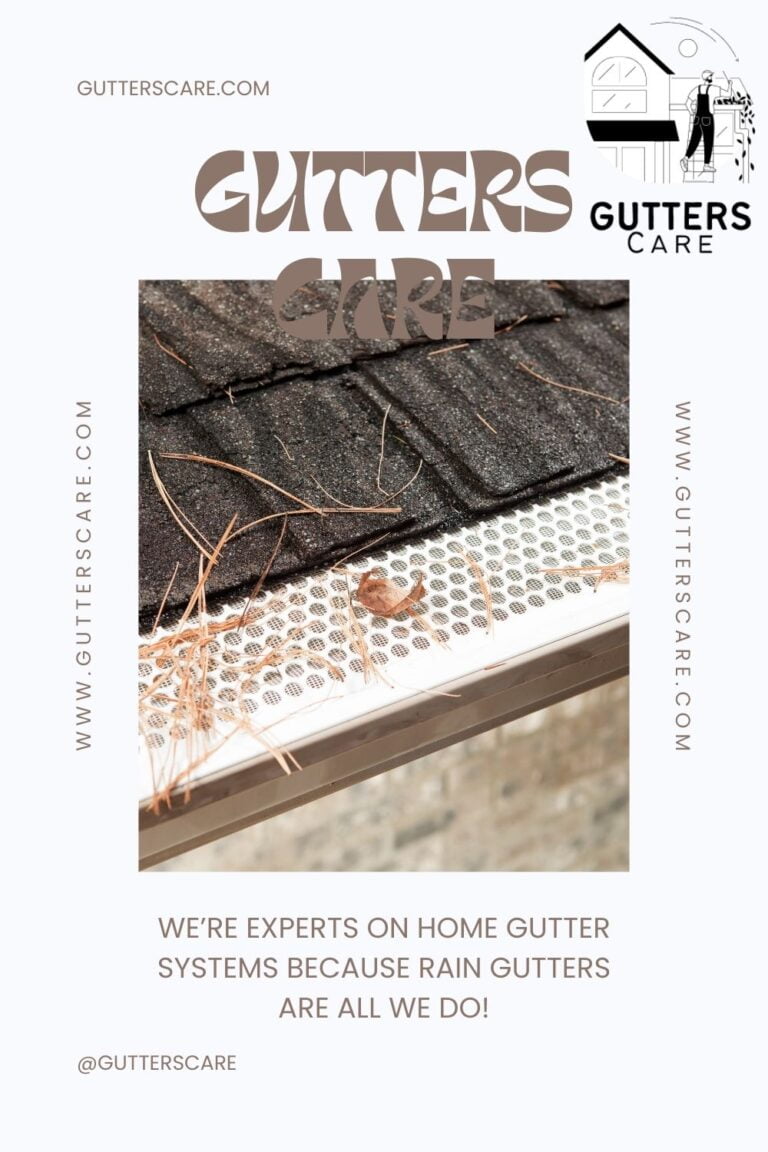Choosing the Best Gutters for Your 4000 Sq. Ft. House: A Comprehensive Guide
Discover the best gutter options for your 4000 sq. ft. home. Learn about materials, sizes, and installation tips to protect your investment. Subscribe to Gutters Care newsletter for more expert advice.
- Gutters for Your 4000 Sq. Ft. House – Learning Objectives
- The Ultimate Guide to Protecting Your 4000 Sq. Ft. House with Gutters
- The Importance of Gutters for Your Home
- Determining the Right Gutter Size
- Material Matters: Choosing the Right Gutter Material
- Gutter Styles and Profiles
- Gutter Installation: DIY vs. Professional
- Gutter Maintenance and Care
- Conclusion
- Subscribe to the Gutters Care Newsletter:
- Comparison of Gutter Materials for Your 4000 Sq. Ft. House
- FAQs About Choosing Gutters for Your 4000 Sq. Ft. House
Gutters for Your 4000 Sq. Ft. House – Learning Objectives
- Introduction
- The Importance of Gutters for Your Home
- Determining the Right Gutter Size
- Material Matters: Choosing the Right Gutter Material
- Gutter Styles and Profiles
- Gutter Installation: DIY vs. Professional
- Gutter Maintenance and Care
- Conclusion
- Subscribe to Gutters Care Newsletter
The Ultimate Guide to Protecting Your 4000 Sq. Ft. House with Gutters
When it comes to safeguarding your 4000 square foot house from water damage, gutters play a crucial role. They channel rainwater away from your home’s foundation, preventing erosion, basement flooding, and structural damage.
However, choosing the right gutters for a house of this size can be a daunting task. In this comprehensive guide, we will walk you through the key considerations, helping you make an informed decision to protect your investment.
The Importance of Gutters for Your Home
Before delving into the specifics of choosing gutters for a 4000 sq. ft. house, let’s understand why gutters are essential for any home, regardless of its size.
Gutters are like the unsung heroes of your home’s exterior. They collect rainwater as it flows off your roof and direct it away from your foundation.
Here are some key reasons why gutters are indispensable:
- Preventing Foundation Damage: Rainwater can erode soil and cause foundation settling. Gutters prevent this by directing water away from your home’s base.
- Avoiding Basement Flooding: Excess water near your foundation can seep into your basement, leading to costly damage and mold growth. Gutters keep your basement dry.
- Preserving Landscaping: Uncontrolled rainwater runoff can damage your landscaping and lead to soil erosion. Gutters protect your gardens and hardscapes.
- Preventing Exterior Damage: Rainwater can cause staining and decay on your siding, doors, and windows. Gutters help preserve your home’s exterior.
Now that you understand the importance of gutters, let’s move on to the key factors to consider when selecting the right gutters for your 4000 sq. ft. house.
Determining the Right Gutter Size
One of the first things you need to determine when choosing gutters is their size. The size of your gutters is directly related to their capacity to handle rainfall and prevent overflow. For a 4000 sq. ft. house, you’ll want gutters that can efficiently manage the water runoff.
Here’s how to determine the right gutter size:
- Calculate Roof Area: Measure the square footage of your roof. In this case, it’s a 4000 sq. ft. house. The larger the roof, the more water it will collect.
- Consider Rainfall Patterns: Research the average annual rainfall in your area. If you experience heavy rainfall, you’ll need larger gutters to handle the water flow.
- Determine Roof Pitch: The pitch or slope of your roof affects how quickly water runs off. Steeper roofs shed water faster, so you’ll need larger gutters to keep up.
- Consult a Professional: For accurate sizing, it’s advisable to consult a gutter professional who can factor in all these variables to recommend the right size for your specific situation.
Material Matters: Choosing the Right Gutter Material
Once you’ve determined the appropriate size, the next decision is choosing the right material for your gutters. Different materials offer various advantages and disadvantages, so it’s essential to pick the one that suits your needs best.
Here are some common gutter materials to consider:
- Aluminum Gutters: Lightweight and resistant to rust, aluminum gutters are a popular choice. They are available in various colors and are relatively low-maintenance.
- Vinyl Gutters: Affordable and easy to install, vinyl gutters are suitable for smaller budgets. However, they may not be as durable as other materials and can become brittle in extreme weather.
- Copper Gutters: Known for their elegance and longevity, copper gutters add a touch of sophistication to your home. They develop a beautiful patina over time but come with a higher price tag.
- Steel Gutters: Durable and resistant to damage, steel gutters are ideal for areas with harsh weather conditions. They can be prone to rust, so proper maintenance is crucial.
- Galvanized Steel Gutters: Similar to regular steel gutters but with a zinc coating for added protection against rust. They are sturdy but require occasional maintenance.
- Zinc Gutters: Highly durable and corrosion-resistant, zinc gutters can last for decades. They develop a matte gray patina over time, giving your home a distinctive look.
When selecting a material, consider your budget, the climate in your area, and the aesthetic appeal you desire for your home.
Gutter Styles and Profiles
Gutters come in various styles and profiles, each with its own unique characteristics and advantages. The choice of gutter style can impact both the functionality and aesthetics of your home.
Here are some common gutter styles:
- K-Style Gutters: These gutters have a flat back and a decorative front that resembles crown molding. They can hold more water than half-round gutters and are a popular choice for modern homes.
- Half-Round Gutters: These gutters have a semi-circular shape, providing a classic and elegant look. They are often chosen for traditional and historic homes.
- Fascia Gutters: Fascia gutters are integrated into the roofline, creating a seamless and sleek appearance. They are an excellent choice for contemporary homes.
- Box Gutters: Typically hidden within the roof structure, box gutters are custom-made to fit the design of your home. They are a discreet option that doesn’t detract from your home’s aesthetics.
- Seamless Gutters: These gutters are custom-made on-site to fit the exact dimensions of your home. They have fewer seams, reducing the risk of leaks.
When selecting a gutter style, consider the architectural style of your house and your personal preferences.
Gutter Installation: DIY vs. Professional
Once you’ve chosen the right gutter size, material, and style, the next decision is whether to install them yourself or hire a professional. Gutter installation requires careful planning and precise execution to ensure they function correctly.
Here’s a comparison between DIY and professional gutter installation:
DIY Gutter Installation: Pros and Cons
Pros:
- Cost savings on labor.
- Opportunity for hands-on experience.
- Ability to choose when to install.
Cons:
- Higher risk of installation errors.
- Potential for leaks and improper drainage.
- Time-consuming and physically demanding.
Professional Gutter Installation: Pros and Cons
Pros:
- Expertise and experience ensure proper installation.
- Faster and more efficient installation.
- Warranty and guarantee on workmanship.
Cons:
- Higher upfront cost due to labor.
- Need to schedule installation with a professional.
While DIY installation may be tempting to save money, it’s crucial to weigh the potential risks and benefits carefully. Improperly installed gutters can lead to costly repairs down the line, making professional installation a worthwhile investment.
Gutter Maintenance and Care
Once your gutters are installed, proper maintenance is essential to ensure they function correctly and last for many years. Neglecting gutter maintenance can lead to clogs, leaks, and water damage to your home.
Here are some gutter care and maintenance tips:
- Regular Cleaning: Clean your gutters at least twice a year to remove debris such as leaves, sticks, and dirt. Clogged gutters can cause water to overflow and damage your home.
- Inspect for Damage: Periodically check your gutters for signs of damage, such as rust, dents, or loose fasteners. Address any issues promptly to prevent further damage.
- Check for Leaks: During heavy rainfall, inspect your gutters for any leaks or overflow. Leaks can cause water to seep into your home’s foundation or walls.
- Trim Overhanging Branches: If you have trees near your home, trim branches that could drop leaves or debris into your gutters.
- Install Gutter Guards: Consider installing gutter guards to reduce the buildup of debris and minimize the need for frequent cleaning.
- Professional Inspections: Schedule periodic professional inspections to ensure your gutters are in good condition and functioning correctly.
Conclusion
Choosing the best gutters for your 4000 sq. ft. house is a significant decision that requires careful consideration of factors such as size, material, style, and installation method. The right gutters will protect your home from water damage, preserve its aesthetics, and enhance its longevity.
Remember to consult with professionals if you’re uncertain about any aspect of gutter selection or installation. Your home is a valuable investment, and investing in quality gutters is a smart way to protect it.
For more expert tips and advice on maintaining and improving your home, subscribe to the Gutters Care newsletter today.
Subscribe to the Gutters Care Newsletter:
Stay up-to-date with the latest tips and expert advice on gutter maintenance, home improvement, and more. Subscribe to the Gutters Care newsletter now and ensure your home is in top-notch condition. Don’t miss out—join our community of homeowners who care about the well-being of their homes!
Comparison of Gutter Materials for Your 4000 Sq. Ft. House
In the process of choosing the right gutters for your 4000 sq. ft. house, one of the crucial decisions is selecting the appropriate material. Each gutter material has its own set of advantages and disadvantages, making it essential to weigh your options carefully. Below, we provide a comparison table to help you make an informed choice:
| Gutter Material | Advantages | Disadvantages |
| Aluminum Gutters | – Lightweight and easy to install | – May dent or bend easily in extreme weather |
| – Resistant to rust and corrosion | – Not as durable as some other materials | |
| – Available in various colors |
| – Relatively low maintenance | ||
| Vinyl Gutters | – Affordable and budget-friendly | – Prone to becoming brittle in extreme weather |
| – Easy to install | – Less durable compared to other materials |
| – Low maintenance | – Limited color options | |
| Copper Gutters | – Elegant and timeless appearance | – High initial cost |
| – Extremely durable and long-lasting | – Develops a patina over time |
| – Corrosion-resistant | – Limited color options | |
| Steel Gutters | – Durable and resistant to damage | – Prone to rust without proper maintenance |
| – Suitable for harsh weather conditions | – Heavier and more challenging to install |
| – Various styles and profiles available | – May require periodic painting | |
| Galvanized Steel Gutters | – Similar advantages to regular steel | – Requires occasional maintenance |
| – Enhanced rust resistance with zinc coating | – May still rust over time | |
| – Sturdy and durable |
| – Available in various profiles | ||
| Zinc Gutters | – Highly durable and corrosion-resistant | – High initial cost |
| – Develops a distinctive gray patina over time | – Limited color options | |
| – Longevity, can last for decades |
Selecting the right gutter material depends on factors such as your budget, climate in your area, and the desired aesthetic appeal for your home. Be sure to consider these aspects carefully to ensure your gutters provide optimal protection and enhance the beauty of your 4000 sq. ft. house.
FAQs About Choosing Gutters for Your 4000 Sq. Ft. House
In your quest to select the perfect gutters for your 4000 sq. ft. house, you might have some questions. We’ve gathered some frequently asked questions to provide you with more clarity on this important decision.
The appropriate gutter size depends on factors like the roof area, rainfall patterns in your area, roof pitch, and local climate. It’s advisable to consult with a gutter professional to determine the right size for your specific needs.
The best gutter material depends on your budget, the climate in your area, and your aesthetic preferences. Common options include aluminum, vinyl, copper, steel, galvanized steel, and zinc. Each material has its own advantages and disadvantages, so consider your priorities when making your choice.
The choice of gutter style should complement the architectural design of your home. Options include K-style gutters, half-round gutters, fascia gutters, box gutters, and seamless gutters. Select a style that matches the overall look of your house.
While DIY gutter installation is possible, it’s recommended to hire a professional. Gutter installation requires precise measurements, proper alignment, and knowledge of drainage systems. A professional can ensure your gutters function correctly, reducing the risk of leaks and other issues.
Gutters should be cleaned at least twice a year to remove debris and prevent clogs. Additionally, inspect them for damage and leaks periodically, especially after heavy rainfall or storms. Consider installing gutter guards to reduce the frequency of cleaning.
Copper gutters are known for their durability and elegant appearance. While they come with a higher upfront cost, their longevity and resistance to corrosion can make them a worthwhile investment if you appreciate their unique aesthetics.
Seamless gutters are custom-made on-site to fit the exact dimensions of your home. They have fewer seams, reducing the risk of leaks and enhancing their appearance. Seamless gutters are an excellent choice for minimizing maintenance and improving functionality.
Yes, many gutter materials, such as aluminum and steel, can be painted to match your home’s color scheme. This allows for customization and ensures your gutters blend seamlessly with your house’s exterior.
Some gutter manufacturers offer warranties on their products, typically covering defects in materials and workmanship. Be sure to inquire about warranties when purchasing gutters, and keep documentation for reference.
To find a reputable gutter professional, ask for recommendations from neighbors or friends who have recently had gutters installed. You can also research local companies online, read reviews, and request quotes from multiple providers to compare prices and services.
We hope these FAQs have provided valuable insights into choosing the right gutters for your 4000 sq. ft. house. If you have more questions or need further assistance, don’t hesitate to reach out to a gutter expert or contact our Gutters Care newsletter for expert advice.














